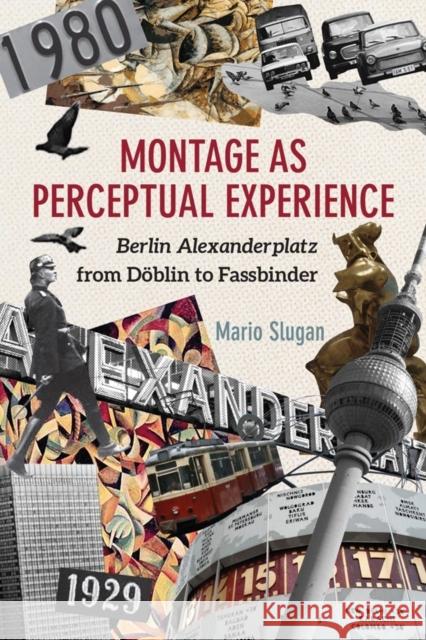Montage as Perceptual Experience: Berlin Alexanderplatz from Döblin to Fassbinder » książka
Montage as Perceptual Experience: Berlin Alexanderplatz from Döblin to Fassbinder
ISBN-13: 9781640140059 / Angielski / Twarda / 2017 / 254 str.
Alfred Doblin's novel Berlin Alexanderplatz and its film adaptations by Jutzi and Fassbinder are canonical works of literature and cinema, and yet there is no monograph that treats all three. This omission is even more striking since Doblin's novel is seen as the most famous example of literary appropriation of film montage aesthetics. Mario Slugan addresses this glaring oversight by considering montage in experiential, historic, stylistic, and narratological terms. Starting from the novel argument that montage is best understood as a perceptual experience rather than as a juxtaposition of meaning, Slugan proposes that it was the perceived experiential similarity with Dada photomontage and Soviet montage films rather than any juxtaposition of meaning that made contemporary critics identify Berlin Alexanderplatz as the first novel to appropriate film montage. It was the perceived relative absence of montage in the filmings of the novel, moreover, that significantly contributed to their contemporary dismissals as failed adaptations. Slugan argues that both Jutzi's and Fassbinder's films nevertheless present innovative types of both visual and sound montage. These, in turn, allow for the articulation of medium-specific traits of film montage as opposed to those of literary montage, including the organization of time and space, the use of ready-made material, and the relation of montage to the figure of the narrator. Mario Slugan is a Postdoctoral Associate Fellow at the Department of Film and Television Studies and the Department of German Studies, University of Warwick.











